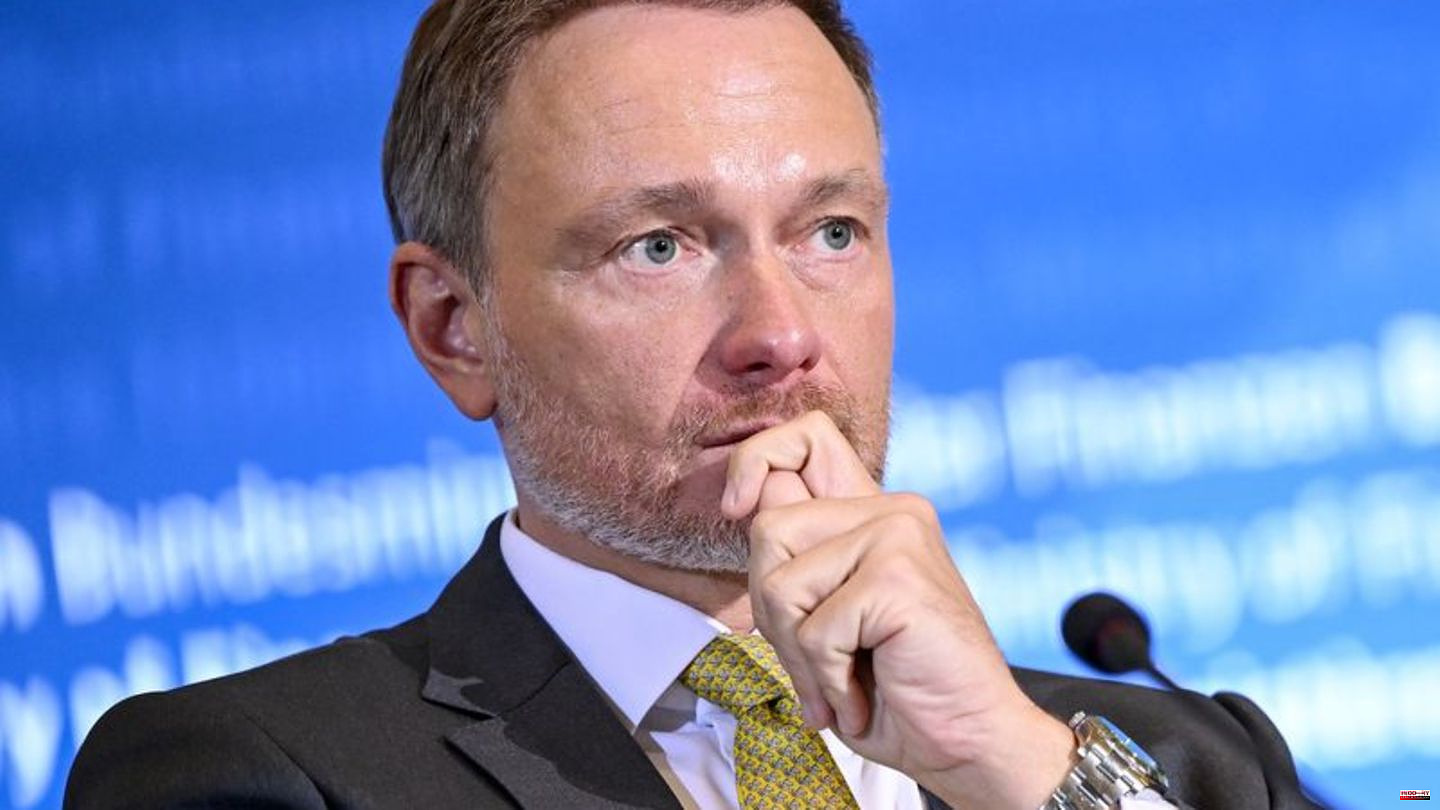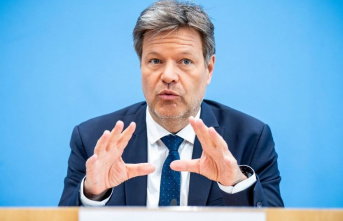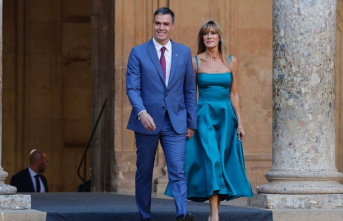Finance Minister Christian Lindner and his ministry consider a reduction in income tax to be appropriate given the current economic situation. This emerges from an internal paper from the Ministry of Finance, which is available to the German Press Agency and which was first reported by the "FAZ". While the Union thinks the proposal is good, it does not meet with much approval from the coalition partners.
The FDP politician Lindner had asked his experts for suggestions on how the economic recovery could be accelerated and Germany's competitiveness strengthened. "In addition to the measures mentioned, a general reduction in the tariff for income and corporation tax is also an option," the paper says. Alternatively, the complete abolition of the solidarity surcharge is conceivable.
The experts from Lindner's ministry are calling for a turning point in financial and economic policy. Recently, high energy prices and inflation rates, deficits in modernization and the lack of skilled workers have weakened Germany as a business location. Better incentives for investments, a stronger supply of skilled workers and the reduction of bureaucratic obstacles are therefore necessary.
Higher taxes for the rich not an issue
In addition to tax measures such as higher research funding and an investment premium ("Super-Afa"), more flexible working hours and continued operation of the nuclear power plants beyond April 2023 are "technically" advocated. On the other hand, the paper clearly rejects higher taxes for the rich via "energy solos", a higher top tax rate or the introduction of a wealth tax.
The proposals from the specialist level are now a basis for internal discussion, according to the Ministry of Finance. Lindner still has to make a political decision as to which measures would be specifically proposed to the cabinet.
Green outraged
The Greens in particular immediately criticized it. "What we don't need are proposals that the finance minister pulled out of dusty FDP campaign boxes over the holidays," said parliamentary group leader Andreas Audretsch to the "Spiegel". Distributing even more money to the richest does not bring economic dynamism. The appeal for nuclear power and fracking also caused outrage among the Greens. SPD faction deputy Matthias Miersch told the "Spiegel": "Nuclear and fracking are not energies of freedom. The Russian war of aggression will not change that."
Union parliamentary group leader Mathias Middelberg (CDU) recognized "many useful approaches" in the Treasury's collection of ideas. However, none of this will be enforceable in the coalition, he told the German Press Agency. "In this respect, the Lindner paper shows one thing above all: the complete impotence of the FDP in the current traffic light government."
Bavarian Finance Minister Albert Füracker (CSU) called for quick action. "Crises are fought with tax cuts - not with tax increases," said the CSU politician of the German Press Agency. If Germany is to remain competitive, the tax burden for companies must be reduced as a matter of urgency. "The federal government should now act quickly so that our economy survives this crisis with as little damage as possible," said Füracker.












